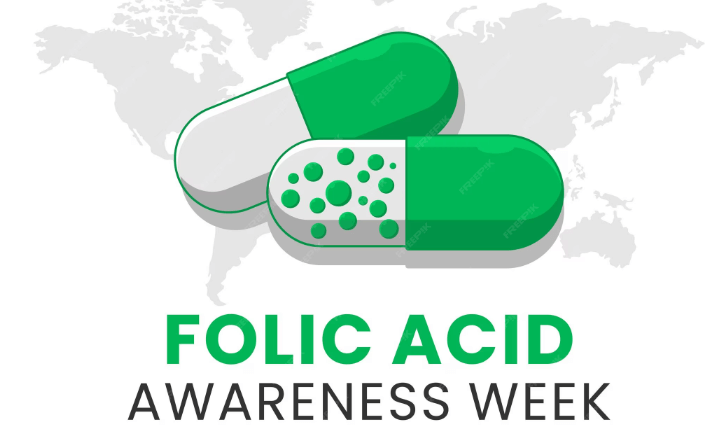D-lightful Vitamin D: Your Key to Stronger Bones and Better Health

Welcome to the world of vitamin D, the sunshine vitamin that holds the key to stronger bones and better health. In this article, we will explore why vitamin D is essential, how it affects our bodies, and the countless benefits it brings.
nbsp;
The Importance of Vitamin D for Overall Health
Vitamin D plays a vital role in calcium absorption, keeping our bones strong and healthy. But its benefits don’t end there. Research suggests that vitamin D also contributes to immune system function, cardiovascular health, and mental well-being.
Vitamin D is necessary for the proper functioning of our bodies. It helps regulate the absorption of calcium and phosphorus, essential minerals that are crucial for bone health. Without enough vitamin D, our bodies cannot effectively absorb calcium, leading to weak bones and an increased risk of fractures.
nbsp;
The Role of Vitamin D in Bone Health
Strong and healthy bones are essential for overall well-being. Vitamin D works hand in hand with calcium to maintain bone health. When we have enough vitamin D, it helps our bodies absorb calcium from our diet and supplements, allowing our bones to stay strong and dense.
Vitamin D promotes bone mineralization, which is the process of depositing calcium and other minerals into our bones. It also helps regulate the levels of calcium and phosphorus in our blood, ensuring that these minerals are available for bone formation.
nbsp;
Vitamin D Deficiency: Causes and Symptoms
Vitamin D deficiency is a common problem worldwide, affecting people of all ages and backgrounds. There are several factors that can contribute to vitamin D deficiency, including lack of sunlight exposure, dark skin, obesity, and certain medical conditions.
The symptoms of vitamin D deficiency can be subtle and easily overlooked. Fatigue, muscle weakness, bone pain, and frequent infections are some of the common signs that you may not be getting enough vitamin D. If left untreated, vitamin D deficiency can lead to more severe health issues, including osteoporosis and increased risk of fractures.
nbsp;
How to Get Enough Vitamin D from Sunlight
Sunlight is the most natural and efficient way for our bodies to produce vitamin D. When UVB rays from the sun hit our skin, a chemical reaction occurs, converting a cholesterol compound in our skin into vitamin D3. However, getting enough sunlight to meet our vitamin D needs can be challenging, especially for those living in northern latitudes or during the winter months.
To maximize your vitamin D production from sunlight, it’s important to spend time outdoors when the sun is at its strongest, usually between 10 am and 3 pm. Exposing your arms, legs, and face to the sun for 10 to 30 minutes a day can help your body produce enough vitamin D. However, it’s crucial to balance sun exposure with proper sun protection to reduce the risk of sunburn and skin damage.
nbsp;
Foods Rich in Vitamin D
While sunlight is the best source of vitamin D, it’s not always possible to get enough from the sun alone. Luckily, there are several dietary sources of vitamin D that can help supplement your intake.
Fatty fish, such as salmon, mackerel, and sardines, are excellent sources of vitamin D. Other foods that contain smaller amounts of vitamin D include fortified dairy products, eggs, and mushrooms. Including these foods in your diet can help ensure you’re getting enough vitamin D, especially if sunlight exposure is limited.
nbsp;
Vitamin D Supplements: Benefits and Considerations
In some cases, getting enough vitamin D from sunlight and diet alone may not be sufficient. This is where vitamin D supplements can be beneficial. Vitamin D supplements are available in two forms: vitamin D2 (ergocalciferol) and vitamin D3 (cholecalciferol). Vitamin D3 is the preferred form as it is more easily absorbed and utilized by our bodies.
Supplements can be particularly helpful for individuals who have limited sun exposure, live in regions with little sunlight, or have conditions that affect their vitamin D absorption. It’s important to consult with a healthcare professional before starting any vitamin D supplementation to determine the right dosage for your specific needs.
nbsp;
Vitamin D and Its Impact on Immune Function
Beyond its role in bone health, vitamin D also plays a crucial role in supporting our immune system. Vitamin D helps regulate the immune response, allowing our bodies to defend against pathogens and reduce the risk of infections.
Research has shown that vitamin D can enhance the function of immune cells, such as T cells and macrophages, which are responsible for identifying and destroying harmful pathogens. It also helps reduce inflammation, a key factor in many chronic diseases.
nbsp;
Vitamin D and Its Role in Preventing Chronic Diseases
The benefits of vitamin D extend beyond bone health and immune function. Numerous studies have shown that vitamin D deficiency is associated with an increased risk of chronic diseases, including cardiovascular disease, cancer, and diabetes.
Vitamin D’s ability to regulate hormone production and reduce inflammation may contribute to its protective effects against these conditions. However, more research is needed to fully understand the mechanisms behind vitamin D’s role in preventing chronic diseases.
nbsp;
Vitamin D Recommendations for Different Age Groups
The recommended daily intake of vitamin D varies depending on age and other factors. Infants, children, adolescents, and adults up to the age of 70 are advised to consume 600-800 IU (International Units) of vitamin D per day. Adults over the age of 70 are recommended to increase their intake to 800-1000 IU per day.
It’s important to note that these recommendations may vary based on individual circumstances and health conditions. Some individuals may require higher doses of vitamin D due to factors such as limited sunlight exposure, malabsorption issues, or certain medical conditions. Consultation with a healthcare professional is essential to determine the appropriate dosage for your specific needs.
nbsp;
Conclusion: Prioritizing Vitamin D for a Healthier Life
Vitamin D is a crucial nutrient that plays a vital role in our overall health and well-being. From maintaining strong bones to supporting immune function and preventing chronic diseases, its benefits are far-reaching.
To ensure you’re getting enough vitamin D, aim for regular sun exposure, include vitamin D-rich foods in your diet, and consider supplementation when necessary. Prioritizing vitamin D can have a profound impact on your health, leading to stronger bones, better immune function, and a happier, healthier life.
So, embrace the power of this “D-lightful” vitamin and unlock its potential for a brighter tomorrow.


























